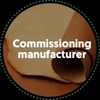
LWG Commissioning Manufacturer Audit
About (LWG Commissioning Manufacturer Audit)
The Leather Working Group (LWG) Commissioning Manufacturer Audit Protocol (CMAP) is a crucial certification standard that plays a significant role in promoting sustainability and responsible practices within the leather industry. Launched in 2020 alongside the Subcontractor Audit Standard, the CMAP evaluates the performance of companies that purchase raw materials and then delegate manufacturing operations to subcontractors. This comprehensive approach ensures that the entire production chain is audited and certified, encouraging transparency and accountability in the leather supply chain.
The CMAP is part of a broader framework of LWG audit protocols, each targeting different aspects of the leather industry. One such protocol is the LWG Leather Manufacturer Audit, which is considered the flagship audit protocol. It is designed to assess the environmental performance of leather manufacturers, evaluating their adherence to sustainability practices, waste management, and resource efficiency. This protocol sets high standards for manufacturers, encouraging them to adopt eco-friendly technologies and reduce their environmental footprint.
Another essential audit protocol is the LWG Trader Audit, which evaluates the environmental impact of traders involved in the leather trade. This protocol assesses traders dealing with raw and part-processed materials, as well as finished leather, thereby encouraging responsible sourcing and trading practices within the industry.
To achieve LWG certification, businesses must undergo auditing by an LWG Approved Auditor, who is trained and authorized by the Leather Working Group. This independent auditing process ensures impartiality and credibility in the certification process.
The LWG certification provides recognition for businesses that meet stringent environmental and ethical standards. The certification is valid for a specific period, 12 months for the Trader Audit and 24 months for the Subcontractor Audit, encouraging continuous improvement and adherence to sustainable practices.
Preparing for the LWG audit can be facilitated through the free Tannery of the Future survey, which aligns with the Leather Manufacturer Standard. This survey serves as a useful self-assessment tool, helping businesses identify areas for improvement before undergoing the official audit.
For businesses seeking additional preparation, LWG Approved Auditors offer consultation services, including pre-audits, to provide valuable insights and guidance on meeting the certification requirements.
In conclusion, the LWG Commissioning Manufacturer Audit Protocol and the associated audit protocols are vital initiatives that promote environmental sustainability and ethical practices in the leather industry. By encouraging transparency, responsible sourcing, and continuous improvement, the LWG certification system plays a pivotal role in driving positive change and ensuring a more sustainable future for the leather sector.